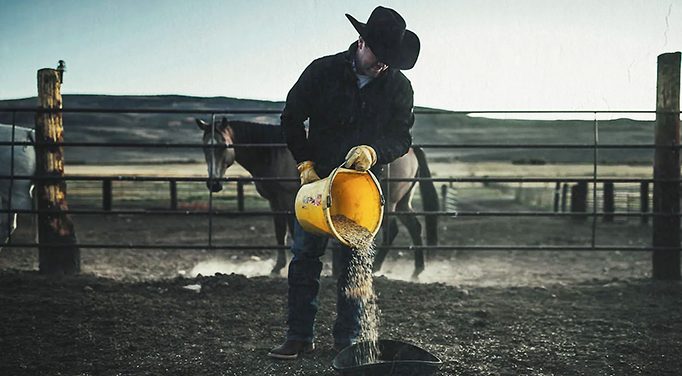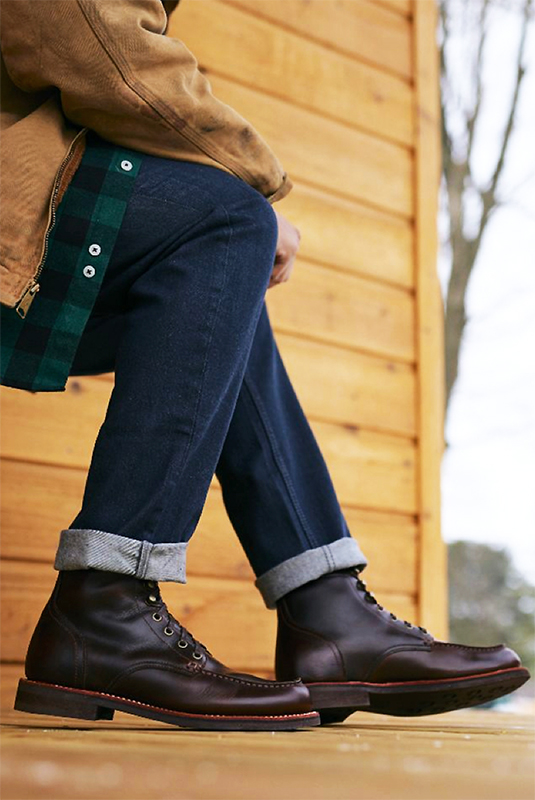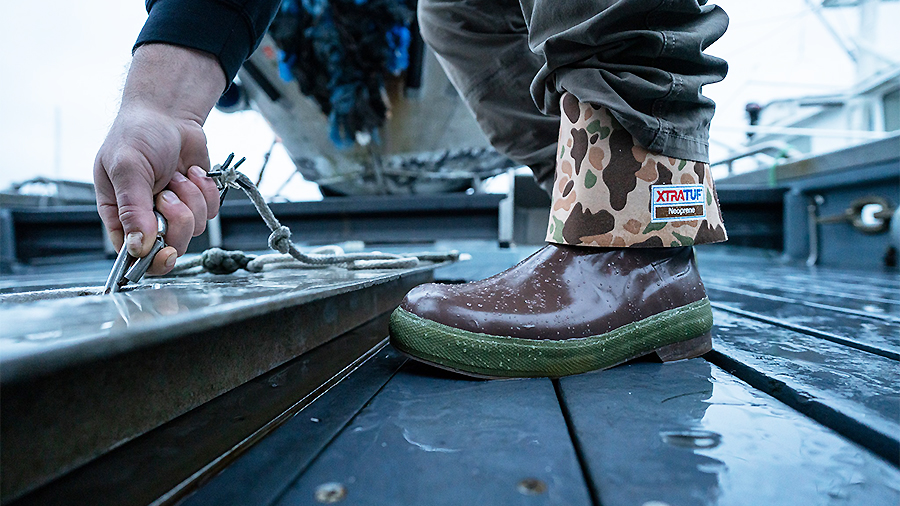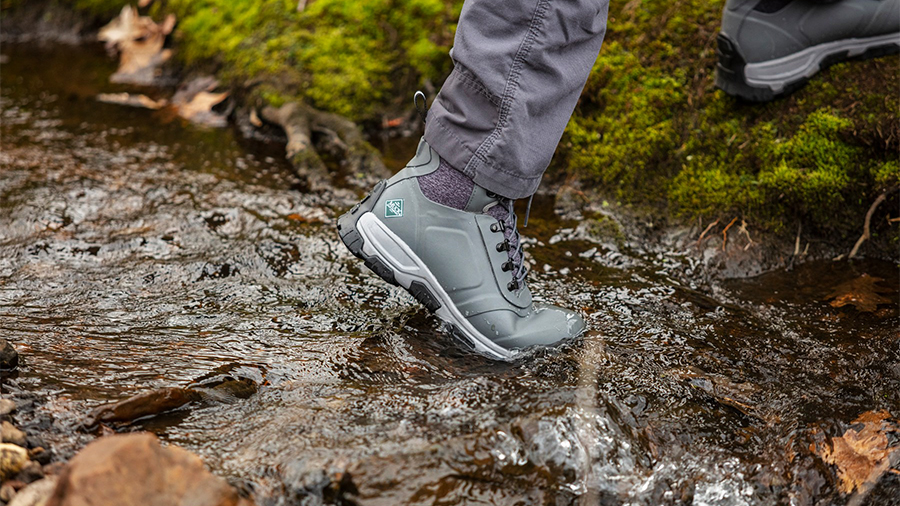Rocky Brands, Inc., the parent company of the Rocky, Georgia Boot and Durango brands (Ohio Group) and the recently acquired Muck Boot, Xtratuf, Servus, Neos, and Ranger brands (Boston Group), fumbled the operations football in the third quarter after doubling sales in Q2 while citing its executional excellence in delivering product to customers.
Company CEO Jason Brooks said that demand for its portfolio of brands was still strong, but the company miscalculated the potential issues with an influx of inventory and its impact on delivering goods.
“Soon after we completed the Boston Group’s inventory from Honeywell’s distribution center to our distribution center (DC) in Ohio in mid-August, which coincided with a record inbound supply deliveries and preparation for a strong finish to the year, we encountered unforeseen issues that have temporarily impacted our ability to fulfill all orders on time,” Brooks shared on a conference call with analysts.
Brooks said it had shipped over 50 percent more orders in the third quarter of 2021 versus Q3 of last year, but, at the same time, the amount of product the company received at the DC was up nearly 200 percent year-over-year. The congestion made it difficult to keep up with the strong demand for the brands under the RCKY umbrella.
“When we completed the acquisition of Honeywell’s performance and lifestyle footwear business in March, we knew there was heavy lifting to be done in integrating our two organizations before we could leverage the strength of the combined businesses to expand market share and drive enhanced profitability. While we completed the move of the acquired brand’s inventory on schedule, soon after, we ran into obstacles as we started processing a record number of orders in Ohio DC,” Brooks outlined.
“Integrating the Boston Group inventory with our distribution systems was not a direct map overdue to differences in Honeywell and our order systems and our fulfillment process,” Brooks continued. “Knowing it would require additional work to align the inventory with our fulfillment systems, we hired more workers and increased the number of shifts at our distribution. Due to the tight labor market, it took longer than expected to onboard and train new staff, which led to inefficiencies in getting product in and out of the DC.”
The CEO said the company had made steady progress over the past 45-days improving the organization with the DC and is “in a much better place operating” at nearly double the capacity before the integration. He did say that the issues are not entirely behind them. However, RCKY does expect to alleviate some of the pressure with its new DC in Reno, NV, which went live on October 8.
“We currently expect the Reno DC to be fully up and running during the first half of next year,” shared Brooks. “This will give us a combined 655,000 square feet of space and the ability to house approximately 4.5 million pairs of footwear.”

Consolidated net sales for the third quarter increased 61.4 percent year-over-year to $125 million, with Wholesale sales increasing 70.3 percent to $96 million, Retail sales increasing 35.3 percent to $21.8 million and Contract Manufacturing sales of 45.1 percent to $7.7 million. The third quarter includes $41.6 million in sales from the acquired Boston Group brands, with approximately $37 million falling in its Wholesale segment and $4 million in the Retail segment.
Outlining the impact of the warehouse issues, Brooks said that the Ohio Group orders for the third quarter were up approximately 26 percent versus the comparable period in 2020, but sales only increased 8 percent, reflecting the impact from delayed fulfillment. He said the recent performance of the Ohio Group had been driven by “strong demand” in both the Wholesale and Retail segments.
On the Wholesale segment, its Western business reportedly grew 17 percent year-over-year, as demand for the Durango brand remains at an all-time high. “Several key customers across traditional western and farm & ranch retail contributed to Durango’s performance, as each posted strong double-digit growth year-over-year,” detailed Brooks. “The brand continues to become more and more meaningful in true western categories, which is driving strong sell-through and help[ing] secure additional shelf space throughout 2021.”
Brooks shared that many of its western accounts have seen a nice pickup in boot sales with the weather turning colder and rodeo season underway. “While logistics and other global supply chain disruptions limited Durango’s potential growth in the quarter, we continue to hear that we are navigating the current situation much better than the majority of our peers,” he said.
In the Work segment, the Georgia Boot brand reportedly experienced notable growth with farm & ranch stores, driven by demand for the brand’s AMP LT collection of boots, including the addition of women’s products at several accounts. “The introduction of the new AMP LT styles contributed to a record-breaking fall booking season and new shelf space for the brand, Brooks said.

The Rocky brand, which spans work, outdoor, western, and commercial military, has had several “positive wins” during the quarter, despite growth hampered by disruption and supply chain headwinds. Brooks said the challenges probably had the most significant impact on the brand’s outdoor businesses, as some of the key products for the fall season, especially new styles were difficult to procure and deliver on time. Brooks said the biggest highlight of the season for the Rocky brand was the introduction of the new Mountain Stalker Pro premium hunting and trekking boot, which provided the brand entry into the technical mountaineering category.
Rocky Western continued its strong trend upward despite the supply and distribution challenges. “Ordering new products early and carrying over additional inventory has allowed Rocky to capitalize on competitor struggles and build on existing programs and gain new shelf space,” Brooks shared. “Though sales were strong with traditional bestsellers, it was the new product that primarily drove the increase for Rocky Western.”
Rocky Work was also said to grow despite the temporary disruption, due in large part to the “explosive growth of the industrial athletic program that had brought in a lot of new business.” Brooks said this included exclusive product for Zappos that they delivered during the third quarter and had been “selling through quite well.”
In the Retail segment, the e-commerce channel was down in low-single-digits in the third quarter after posting a 50 percent increase in sales in the comp period last year. Brooks said the miss was a reflection of the combination of “a tough comparison” and the delay in processing a portion of online orders on time.
“As comparisons further ease and we return to our normalized shipping state, we expect to see e-commerce sales resume growth, fueled by the work we’ve done enhancing the functionality of our sites and expanding our direct-to-consumer efforts to marketplaces, particularly Amazon, and, more recently, Target Plus and eBay,” he explained.
Lehigh reportedly continues its recovery from the height of the pandemic, with sales increasing 23 percent versus the 2020 Q3 period, driven by “both higher account retention, and new accounts, including Stryker Corporation, Estes Express Lines and Schnitzer Steel” that launched in the quarter. “The business is still facing some headwinds from COVID-19 related to accessibility issues and now third-party product delays stemming from supply chain challenges,” Brooks said. He also shared that the Cruise Line business, which had been nearly dormant for 18 months, had started to show signs of recovery while a new email and SMS strategy continued to improve account participation rates, driving revenue per account higher.
Boston Group’s total orders increased 46 percent in Q3 as demand for Muck and Xtratuf is high and continues to grow. Still, the shipment and inventory challenges this past quarter have disproportionately hampered the Group’s, according to Brooks. The resulting sales were down 31 percent. Brooks said that other vendors are having supply chain issues, which keeps the likelihood of accepting late shipments high. “Customers have not been canceling open orders, which gives us an excellent opportunity to capitalize on replenishment in Q4,” he said. “To do this, we are focused on alternative shipping options like cross-docking and container shipment opportunities to drive inventory to accounts.”

Consolidated gross margins dipped to 37.4 percent of sales in the third quarter, compared to 38.4 percent of sales in the comp period last year. Adjusted gross margin this quarter, which excludes a $900,000 inventory purchase accounting adjustment, was 38.1 percent of net sales. The 30 basis point decrease to adjusted gross margin was primarily attributable to lower wholesale segment margins due to an increase in U.S. manufacturing and sourcing costs associated with the acquired brands and a lower mix of retail segment sales compared with a year-ago period, which carries higher gross margins than the company’s wholesale and contract manufacturing segments.
Wholesale gross margins were 36.1 percent of sales in Q3, while Retail posted margins of 49.9 percent. Contract Manufacturing had a gross margin of 18.8 percent in the quarter. Adjusted gross margins for the overall segment were 37.0 percent. Operating expenses were $44.2 million, or 35.2 percent of net sales for the third quarter of 2021, compared to $20.2 million, or 25.9 percent of net sales last year.
Excluding $2.9 million in acquisition-related amortization integration expenses, third quarter 2021 operating expenses were $41.3 million or 32.9 percent of net sales. The increase in operating expenses was primarily driven by the expenses associated with the brands acquired in March of this year.
RCKY reported a net loss of $400,000, or 5 cents per diluted share, compared to net income of $7.6 million, or $1.04 per diluted share in the third quarter of 2020. Adjusted net income for the third quarter of 2021 was $2.5 million, or 34 cents per diluted share.
Turning to the balance sheet, RCKY had $12.9 million in cash and cash equivalents at quarter-end, and debt totaled $238.8 million consisting of $130 million senior secured term loan facility and borrowings under a senior secured asset-backed credit facility. As of September 30, 2021, RCKY had $35.9 million of borrowings available under its credit facility.
At the end of the quarter, inventory was $202 million, compared to $80.7 million in a year-ago period. The $121.5 million increase reportedly includes approximately $90 million associated with the acquired brands and roughly $30 million from orders that did not ship on schedule in the third quarter.
Rocky Brands is cutting its outlook for the fourth quarter and year due to the impact of congestion in its distribution center and the impact of Q3 results.
For the fourth quarter, RCKY now expects net sales to be in the range of $155 million to $165 million and full-year net sales between $500 million and $510 million. The Ohio Group net sales are expected to grow between 15 percent and 20 percent for 2021, compared to the previous outlook of approximately 24 percent growth. Boston Group’s full-year net sales are now expected to be flat to up 5 percent versus the prior forecast of around 20 percent growth.
Company CFO Tom Robertson reminded the call participants that the company would only recognize 80 percent of the Boston Group’s sales, based on the timing of the acquisition in March of 2021.
“We are also on track with migrating the acquired business off Honeywell’s ERP system and on to Rocky’s by the end of this year,” Brooks shared. “This step is critical to providing our newest brands, customers and consumers with the world-class service we’ve been executing at Rocky for years.”
Photos courtesy Georgia Boot, Durango, Muck, Xtratuf
















